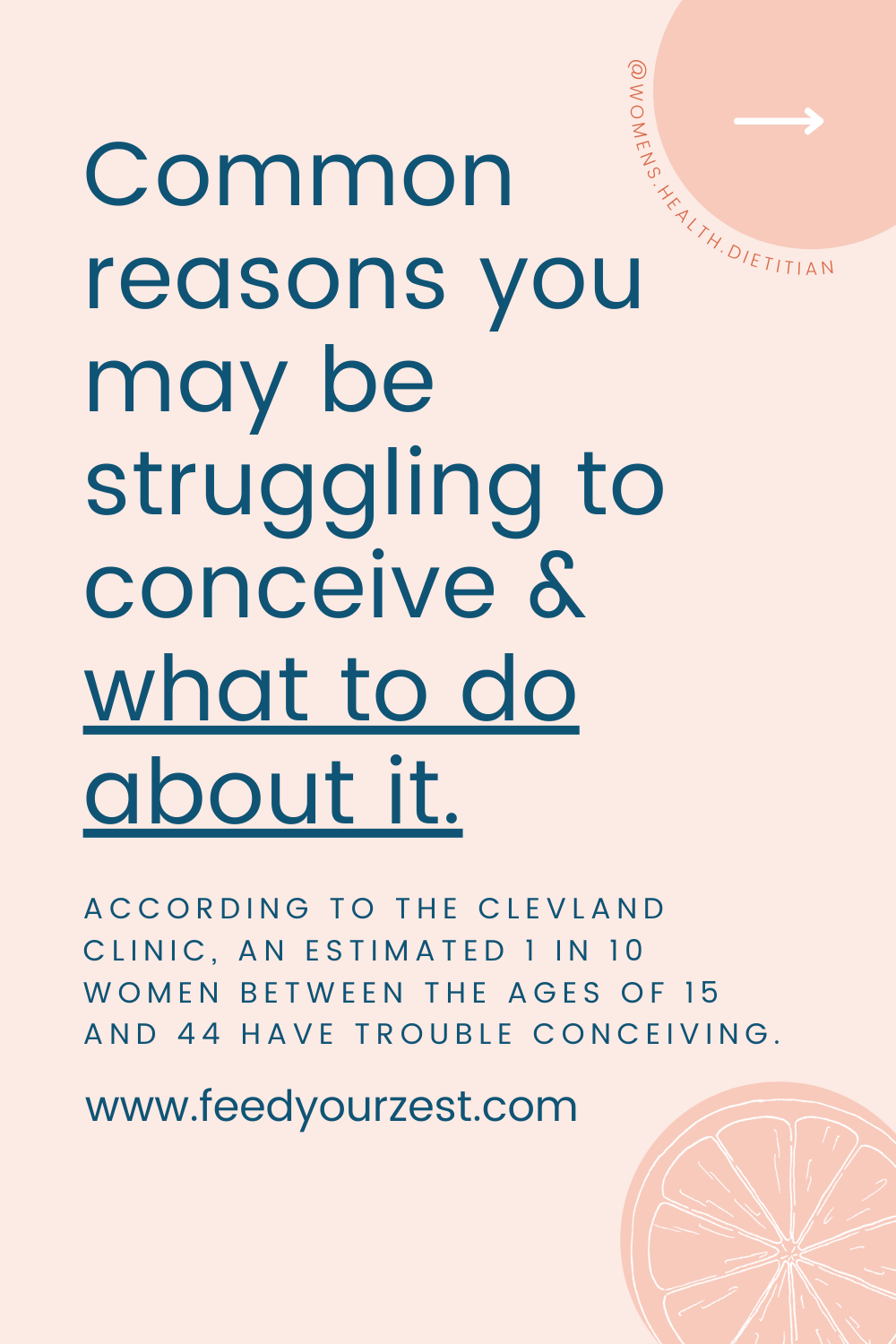Common reasons you may be struggling to conceive and what to do about it
Up to 26% of women may struggle with getting or staying pregnant
Did you know this? While According to the Cleveland Clinic, an estimated 1 in 10 people assigned female at birth between the ages of 15 and 44 have trouble conceiving. Infertility is defined as an inability to get pregnant after one year of unprotected sex. Impaired fecundity is difficulty carrying a pregnancy to term, and the CDC estimates that up to 26% of heterosexual females with no prior births may struggle with getting pregnant or carrying a pregnancy to term.
There are many possible causes for infertility, but in this article, we’ll cover some of the most common reasons I see my clients struggling with difficulty conceiving.
Not ovulating
The most common overall cause of female infertility is failure to ovulate, which occurs in 40% of women with fertility issues. Not ovulating can be caused by many issues, but in my office the most common reasons for anovulatory infertility are polycystic ovarian syndrome (PCOS) and hypothalamic amenorrhea. 1:1 nutrition therapy is extremely beneficial in restoring fertility for folks who are not ovulating.
Additional contributing factors for female infertility
While anovulatory infertility is the most common issue, there are many other reasons you may struggle to conceive. Some of these include:
Blocked fallopian tubes
Celiac disease
Kidney disease
Past ectopic pregnancy
Pelvic inflammatory disease
Pituitary disorders like Cushing’s Syndrome
Sickle cell anemia
Uterine problems including endometriosis, uterine fibroids and uterine polyps
Thyroid disease
Nutrient deficiencies, poor egg quality, under eating and overexercising, excessive stress and so many other factors are often what I find may contribute to folks struggling with unexplained infertility. My program Fully Nourished Pregnancy offers insight into how general fertility nutrition can support your body in getting pregnant. However, it is crucial to speak with your doctor about proper testing and diagnoses to get to the root cause of your fertility struggles.
Male factor infertility
In at least half of all cases of infertility, a male factor is a major or contributing cause. This means that about 10% of all males in the United States who attempting to conceive suffer from infertility. For heterosexual couples, this is why it is SO important that male partners’ fertility be tested.
Male factor infertility may be caused by:
enlarged veins (varicocele) in the scrotum
genetic disorders, such as cystic fibrosis
high heat exposure to testicles from tight clothing or frequent sauna use
injury to scrotum or testicles
low sperm count or low testosterone (hypogonadism)
sperm motility or morphology issues
misuse of anabolic steroids
testicular cancer and treatments
It is unfortunately still SO common to blame infertility on the female partner, when in reality, fertility truly does go both ways. We need a sperm AND an egg to make a baby. I offer couples’ fertility nutrition coaching and also provide resources for male fertility for my clients whose partners may not be open to speaking with a dietitian.
Research has shown a clear connection between nutrition and fertility
For those trying to become pregnant naturally, or through ART (assistive reproductive technology), the following nutrients are linked to positive effects on fertility:
Folate
Vitamin B12
Vitamin D
Omega-3 fatty acids
Eating pattern full of essential macronutrients
It can be hard to know just how much you need of certain vitamins, minerals, and macronutrients for fertility. This is exactly why I created Fully Nourished Pregnancy! I take a holistic approach to walk you through how to support your body with intuitive eating from preconception through postpartum, so you can nourish both your body and your growing baby. By adding nutrition alongside medical support, and ensuring your male partner is doing what they need to do, we can tackle fertility from all angles. Join Fully Nourished Pregnancy or apply for 1:1 coaching today!

